STORY AND PHOTOS BY TAYLOR SHAPPERT
The Oakville training centre for the Lions Foundation of Canada Dog Guides has four or five puppies looking for foster homes and they want you to foster one of them.
Oakville is home to one of only two Lions Club Dog Guides training facilities in Canada. The other is in Breslau, near Guelph.
Currently 10 to 15 students at Guelph University are fostering puppies. “I don’t know that we have any Sheridan students fostering our puppies,” said Sam Hobbes, puppy program staff member. Oakville has about 24 puppies being fostered out right now, and Guelph has about 25.
“With Guelph being a university, and a vet university, it’s such a popular thing to do a foster dog there. It’s never caught on here,” said Michel Hannan, a Sheridan animation teacher who started fostering puppies in 2010.
The puppy fostering program asks for a commitment of 7 to 12 months.
The fostering process can be started by filling out an application at dogguides.com.
The application asks about your lifestyle, dog experience and why you want to be involved. Once the application is approved they will send someone to do a home interview with you.
Students are welcome to foster puppies, but they have to take them almost everywhere they go.
“You do have to make sure you have permission from the school, from teachers and everything, to be able to take the puppy to class because we do want them with you most of the day. They can’t be left alone for more than three hours,” Hobbes said.
It is a big time commitment but the program helps out financially.
“We provide a lot of the main things that would be costly for a dog,” such as vet bills and food, she said. Food for the puppies is donated by Purina.
“There is a $100 deposit when you get the puppy, just to cover some of the equipment we lend you,” like a puppy crate, she said, “and that’s refunded at the end of the year.”
Things that the foster family would be responsible for are leash and collar, toys and treats, grooming, food and water bowls.
There are rules about how foster families should let the puppy behave.
“We do have puppy classes about once a month. Some would be here. There would be a few times a year that you’d have to travel to our Breslau facility,” Hobbes said from her office at the Oakville training centre, at the Lions Club building at 152 Wilson Street.
The fostered dogs will go through about six months of formal training at the facility before being given to someone with a disability such as visual or hearing impairments, epilepsy, autism or diabetes.
The dogs – which are labradors, golden retrievers, or standard poodles – are evaluated on criteria like temperament, size and health.
The facility has a 70 per cent success rate in training, the program overseer said, and the puppies that don’t make the cut are put up for adoption in their adoption program.
It’s hard to give the puppy back at the end, Hobbes said, and many of the workers end up keeping the ones who don’t make it.
“It’s easy to acquire dogs when you work here,” said Hobbes, who is currently fostering Frito, a black lab puppy.
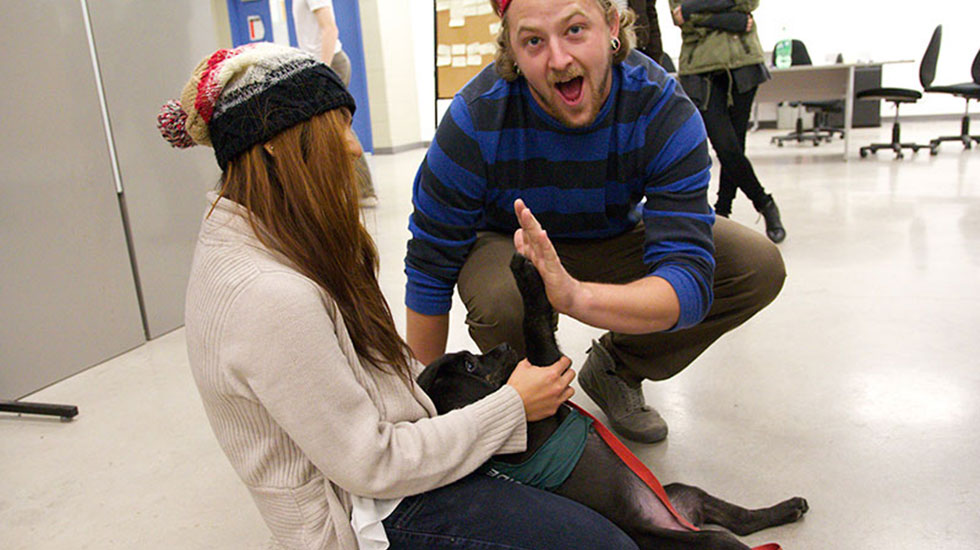

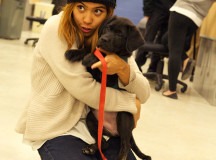
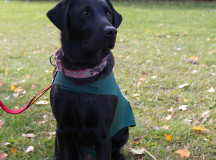
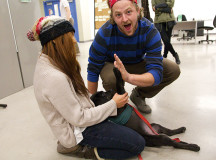
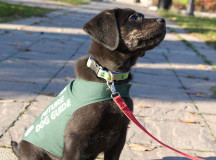
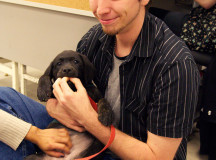
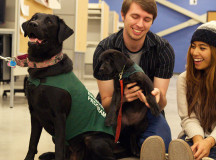
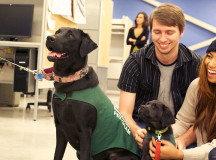

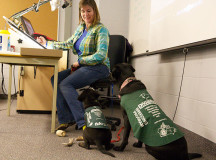
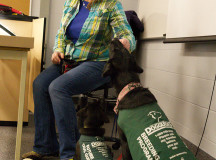
Comments
One response to “Foster puppies in a class of their own”
Great pics and story Taylor!